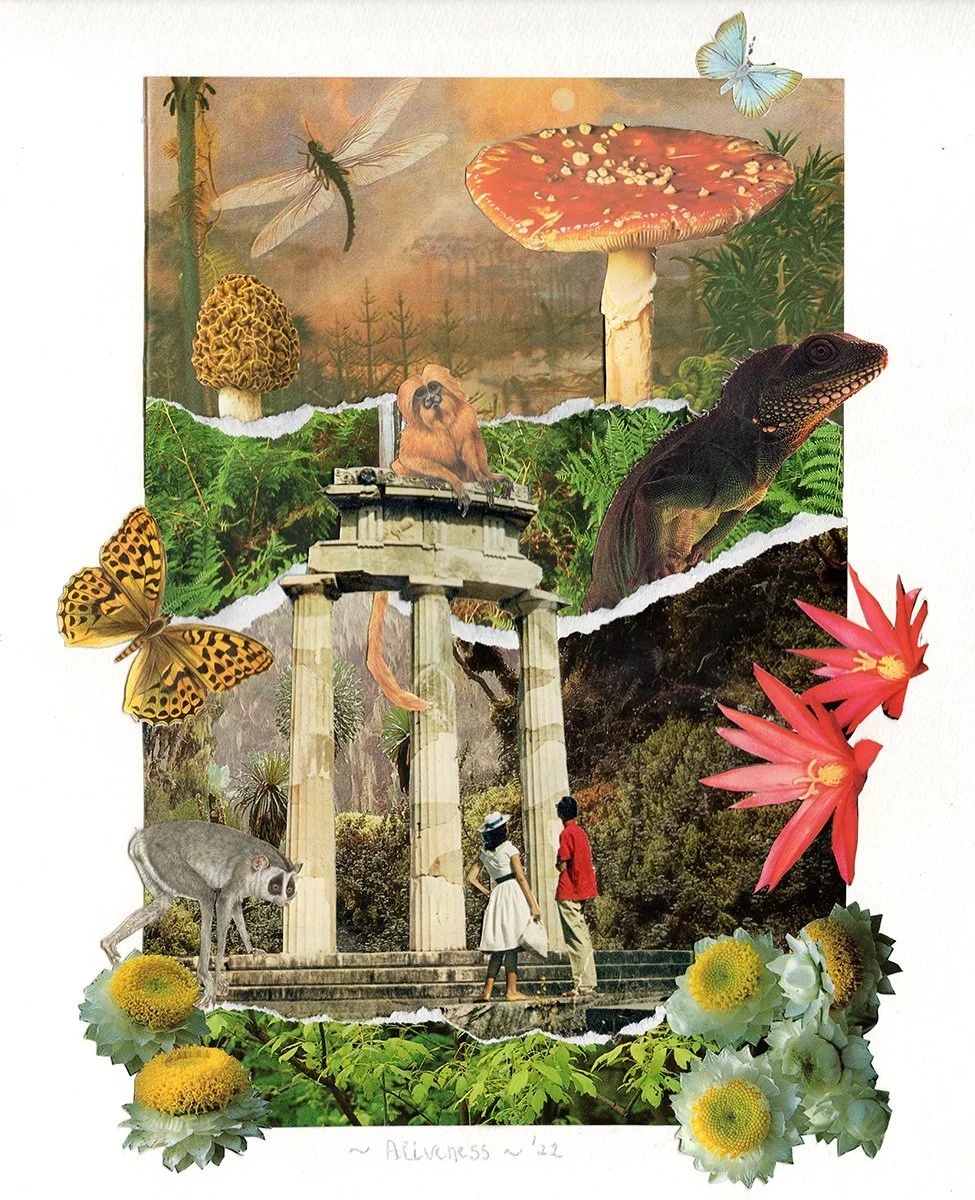Imagination generates empathy and devotion
Published first on our Substack newsletter here.
“The world we know cannot be wholly mind-independent, and it cannot be wholly mind-dependent… What is required is an attentive response to something real and other than ourselves, of which we have only inklings at first, but which comes more and more into being through our response to it — if we are truly responsive to it. We nurture it into being; or not. In this it has something of the structure of love.”
Imagination generates new worlds. Not just desired futures, but all future potentials. Dystopias and protopias dance on the same dusty ground to the melody of our collective narratives, myths, and worldviews, glistening in the thick air of ecological collapse. Yes, the absence of collective multi-species imagination in the Global North continues to fuel the derangement of living systems. It enabled the disconnection from places and species that are incredibly vital to planetary biodiversity and homeostasis. But also, our imagination was used to design and create profoundly extractive and parasitic relationships with each other and the Earth. The language, systems, technologies, and economy that facilitated the capture and mass extraction first emerged in our imagination.
Imagination is the first act of mending the rift in the membrane that brings us into a full, embodied relationship with the earth — the first step in the process of undoing the story of separation that permitted us to morally justify centuries of capture and extraction.
But what if we realize that imagination much like attention, directed at regeneration and kinship, can be an act of devotion? What if we use our imagination as a bridge, connecting our personal experiences with the experiences of other living beings? Seen this way, imagination is the first act of mending the rift in the membrane that brings us into a full, embodied relationship with the earth — the first step in the process of undoing the story of separation that permitted us to morally justify centuries of capture and extraction.
How do crows and chimpanzees experience loss? How do robins express joy? When we see the world as sentient and other species as capable of having emotional experiences, we humans aren’t as exceptional as we think. There’s a great deal we can learn from other living beings.
Multi-species imagination reconnects and enlists us as listeners to a world full of wisdom, a world that is always speaking to us. And once we begin to step outside our own minds and practice paying attention, our love will find ways to serve the wider web of life — to tell stories that aren’t just about us, to design products and services that are co-created alongside nature, for nature. To build worlds that develop the potential of all beings and celebrate the diversity, abundance, and beauty that multi-species futures have to offer.

